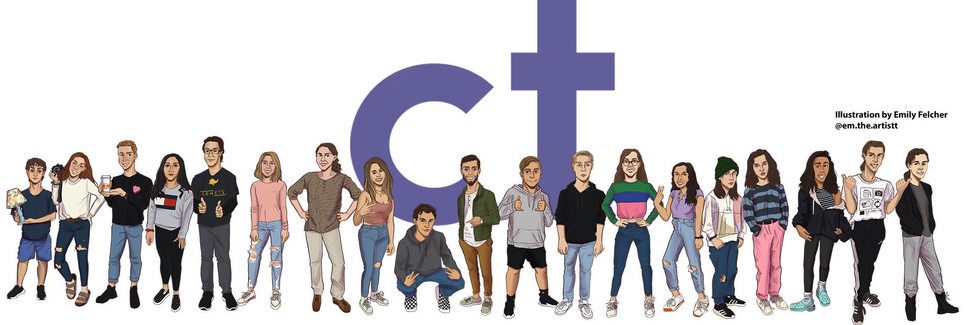The Harmful Impact of Anti-addiction Campaigns
A remake of the TRUTH campaigns logo created by Matthew Faccio
December 19, 2019
Anti-addiction campaigns do not pave a path of redemption for addicts but instead paint the picture that their mistake has ruined their life and this is unchangeable, when in fact this is not true whatsoever. Addiction is an epidemic and a seemingly never-changing problem that stems from deep-rooted human nature. Many people believe addiction is an attribute of weakness and that it is their own fault for their inability to quit.
The most recent addiction crisis first world countries have faced is teen vaping. Bathrooms have been turned into havens because of the lack of security in these areas. There have been proper measures taken to correct this behavior, but for an addict, any means justify the cause. Now that vaping is no longer as big of a trend as it was in 2017 and 2018, that is what we are left with: addicts by the dozen buying all sorts of third party products to meet their nicotine high. The dangers of third part nicotine products and nicotine in general is no secret and is old news.
I want to provide insight on something no one seems to care about, the redefinition of addiction. A recent study with rats shows us just how wrong we are about the truth behind addiction. The experiment was testing if social factors influence addiction/substance abuse, and unsurprisingly they do. But to a ridiculous extent, when rats were given the choice of using a drug-laced water they had previously consumed or social interaction, they almost always chose the social interaction. Additionally, when rats were alone and were not allowed to consume the drug, upon reintroduction to the substance the would almost always relapse. But when they quit for social interaction, there were almost never any relapses.
However, these are rats, not people, which is why Portugal is an extremely important factor. In 2001, Portugal decriminalized the recreational use of any drug, and the effects are more similar than those who support old school addiction ideas would like to admit. In the nearly seven years of this law being in effect, from 2001 to 2008, the overdose rates have dropped by 85 percent, a sign of significant change.
Drug addicts are forced to hide their behaviour for a multitude of obvious reasons, many of them involving the law and or shame that comes with substance abuse. Portugal decriminalizing all drugs makes it easier for addicts to come out and seek help, and people feel better about helping addicts because they no longer need to worry about complications of the law.
This is where The Truth Campaign comes in. They try and fight addiction in a completely counteractive manner. They use fear as a motivator to scare people away from using various nicotine products and drugs, and a prime example of this is their website where they list a statistical facts about overdose and addiction. They even have a tab that talks about quitting an addiction but has no advice on how to quit, it just essentially has a bunch of quotes saying that smart people quit and what the odds of getting an addiction are.
Addiction is viewed by these anti-addiction campaigns as an event horizon that, once entered, is inescapable. Worst of all, the big nicotine and tobacco franchises are not the only ones profiting off of addiction. Take a look at the shop tab on The truth’s website.
The truth is toxic and does not make any great strides to help those who have fallen into what they see as the black hole of addiction. The Truth profits off of addiction just like the big companies they talk down on, they had a good cause just bad means. The best way to combat a problem stemming from loneliness and lack of understanding is to simply show love towards those that feel they do not deserve it.

